Turning the wheels of integration
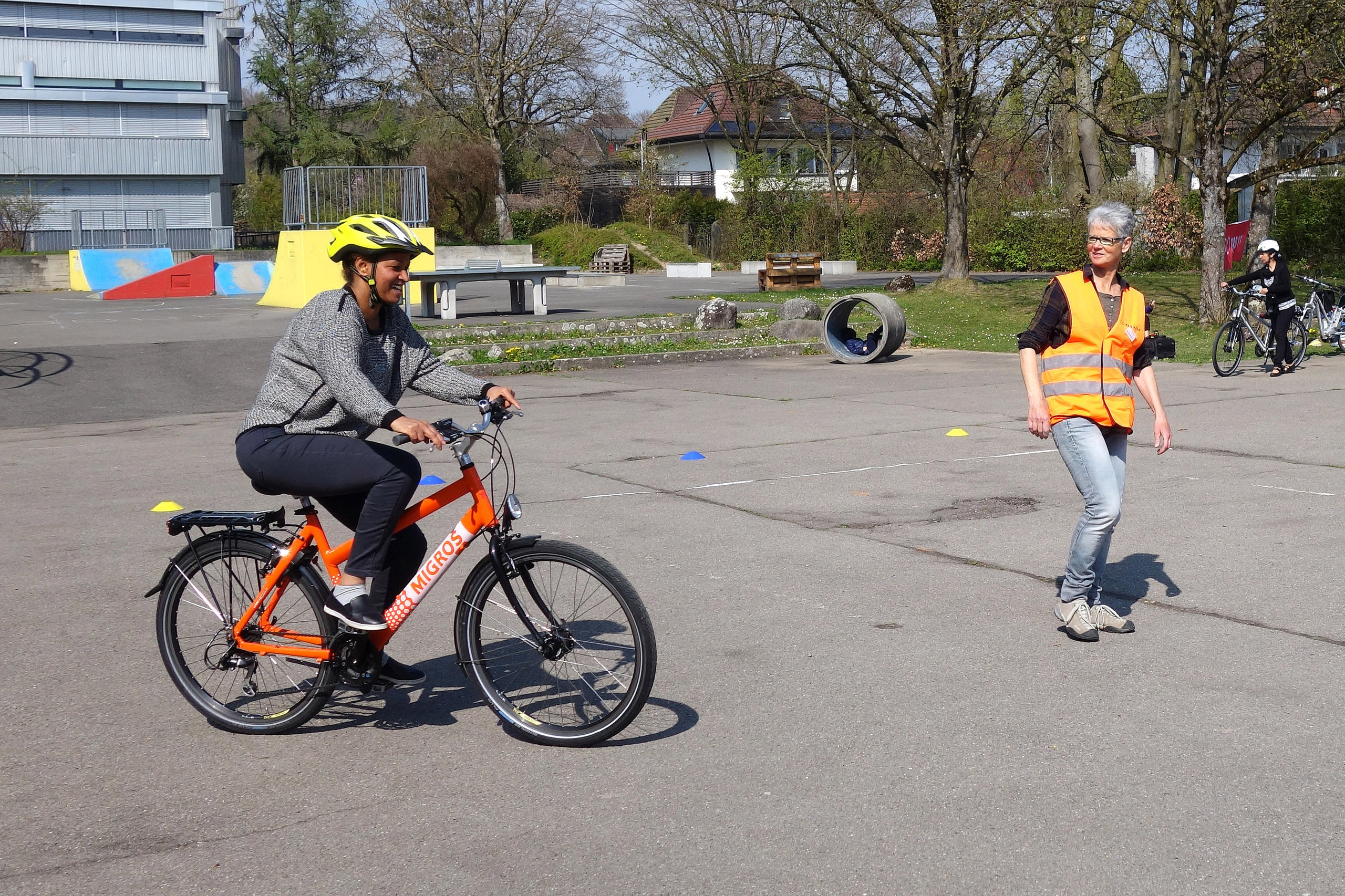
As easy as riding a bike? Not if you never learned how. A Swiss non-profit group offers cycling lessons especially for women from other countries.
“I rode a little bit as a child but that was it. In Iran, women aren’t allowed to ride bikes on public roads,” says Fatemeh Vafaei. Now a mother herself, she’s grateful for the chance to learn how to get around on two wheels again. Her Iranian husband, here to support her on a sunny afternoon in suburban Bern, nods in approval.
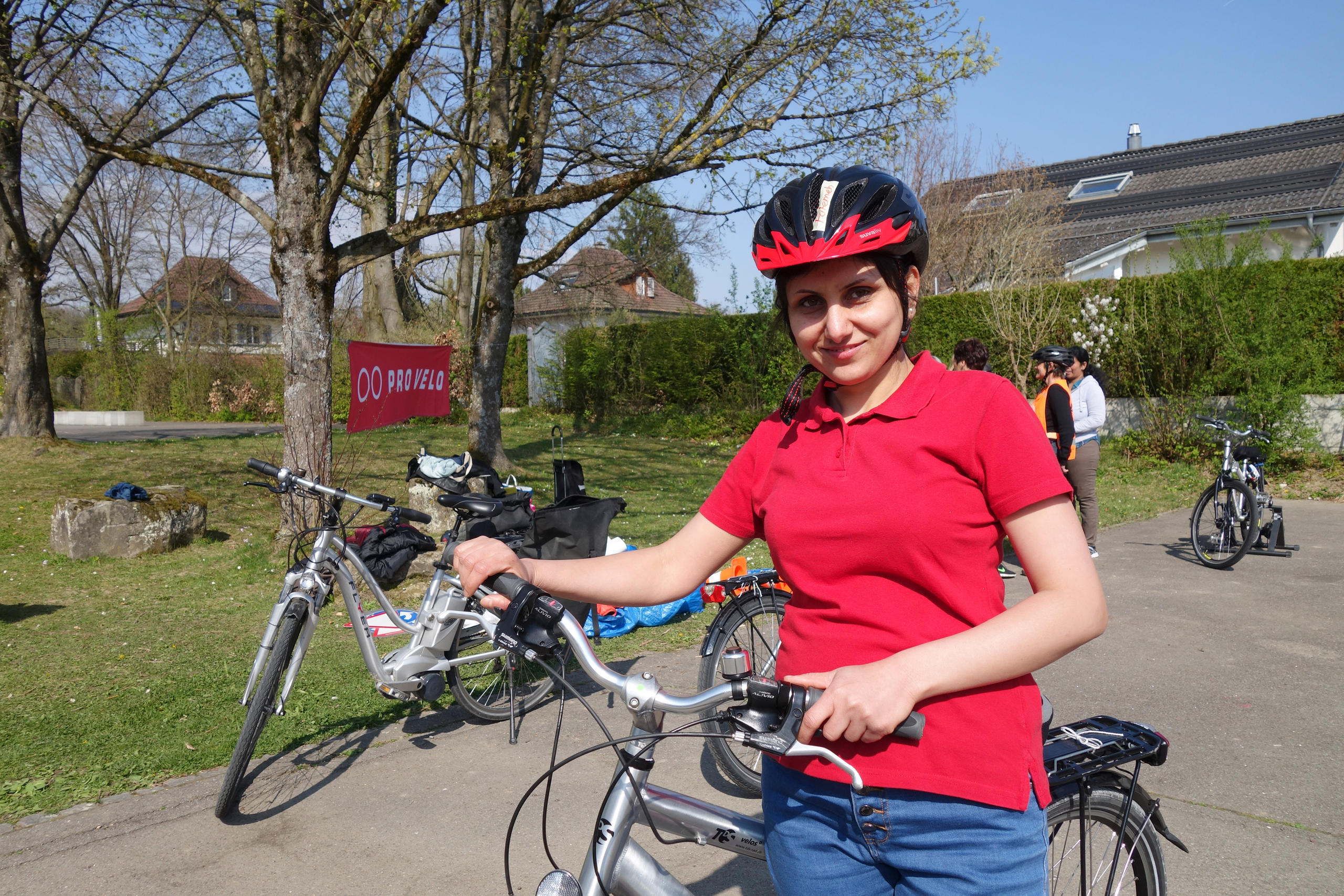
Vafaei is one of nearly 20 women taking advantage of a six-day course offered by the Swiss Bicycle Advocacy AssociationExternal link, Pro VeloExternal link. It’s geared especially towards migrants, including many who’ve never been on a bicycle at all.
This particular courseExternal link – six two-hour lessons over a period of three weeks – takes place on the property of a school in Zollikofen near Bern. Volunteers help participants navigate the traffic models outlined in chalk and traffic cones.
Despite the adage, it turns out that it’s not quite “as easy as riding a bike”.
“Today’s going well, but I still find left turns difficult. And turn signals as well – I don’t like to take a hand off the handlebars,” Vafaei confesses on day two.
“We drive on the left in Thailand – that’s an adjustment, and important for traffic skills,” notes Praden Vuilleumier with a smile. She learned about the course through KaribuExternal link, a local intercultural women’s group.
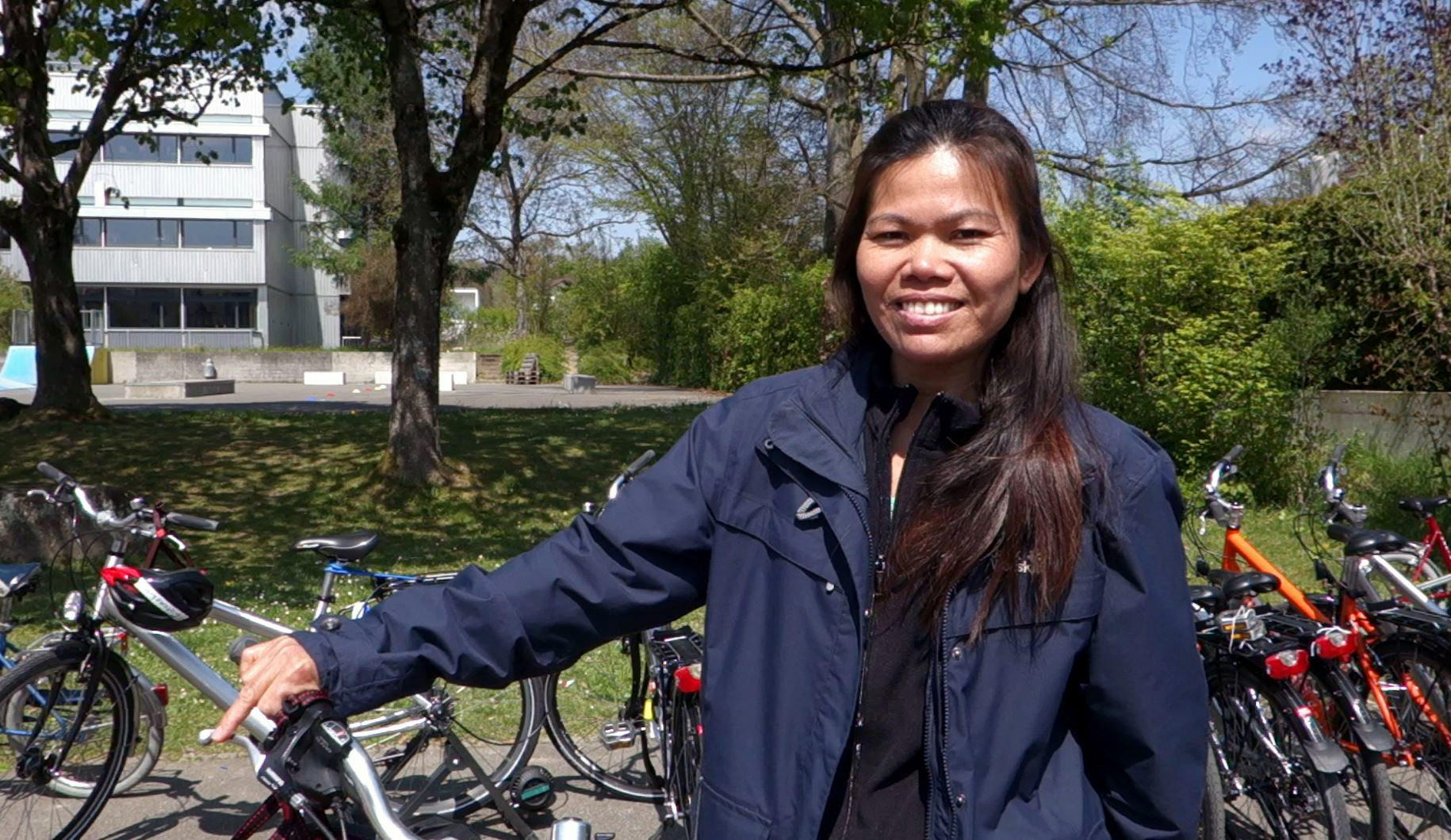
Karibu and Pro Velo are co-hosting the course in Zollikofen. It costs CHF60 ($62) per participant, which includes the use of a bike and helmet as well as child care.
“This course gives the women more self-confidence and mobility. They can do something that many Swiss people already enjoy,” points out Karibu’s manager Heidi Mosimann.
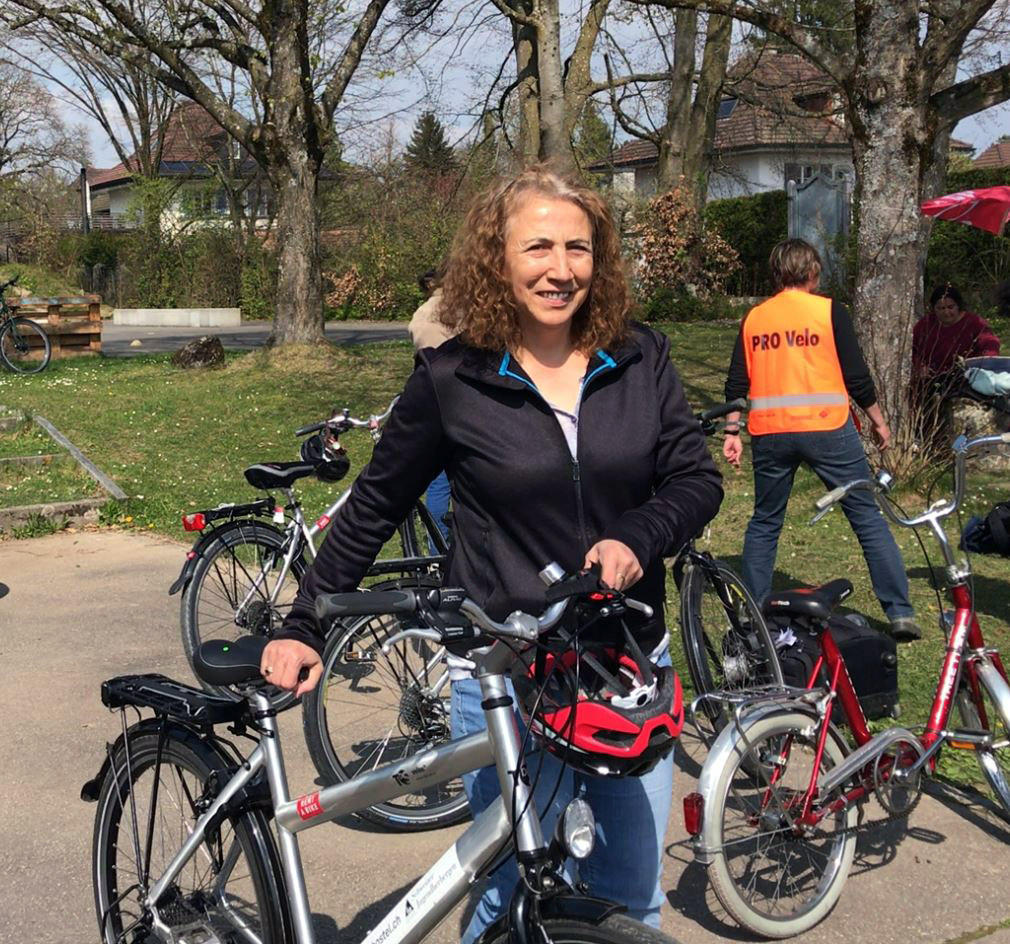
Cemile Selen, originally from Turkey, wants to learn so that she can join her grandchildren on cycling excursions. “The course is very helpful. For example, beforehand I didn’t know how to change gears. I’m enjoying it very much, and looking forward to telling my grandkids. They don’t know I’m doing this.”
One of the volunteers mentions discreetly that some of the women are coping with a more uncomfortable challenge: genital mutilation. Riding a bicycle can be painful for them depending on how their wounds have healed and the related complications. Still, nearly everyone sticks with the lessons, as we find out on a second visit.
‘Doing something for themselves’
By the sixth and final day, there are noticeably fewer wobbles. The women seem more confident and far less timid. They’ve learned about balance, braking techniques, and traffic laws.
Afghani participant Yusufi Benazir is still a little shaky – even causing a minor collision at slow speed. But she soldiers on enthusiastically.
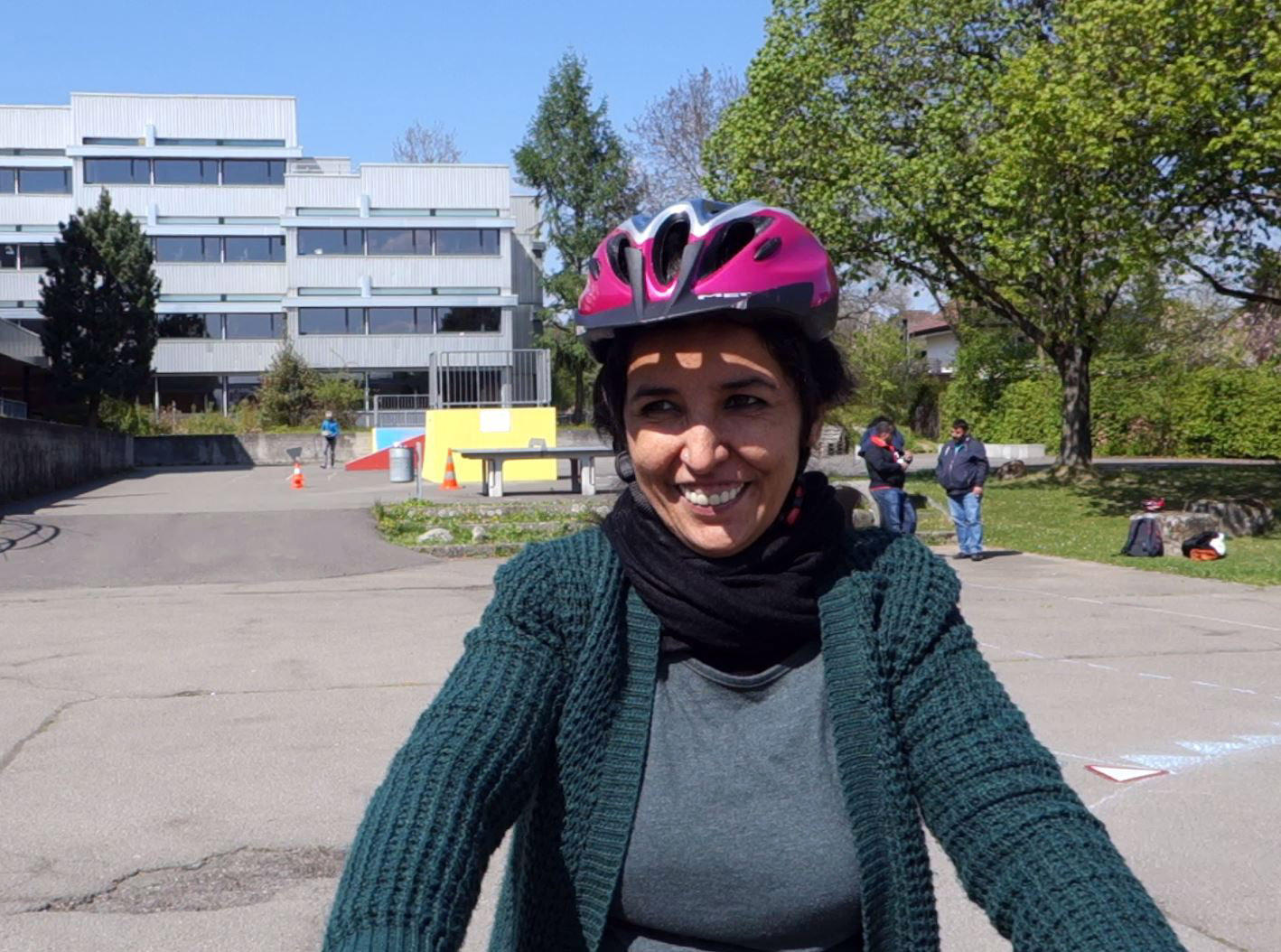
“I like bicycling. And I need to learn so that I can ride to work or pick up groceries,” Benazir says, adding, “I’ll probably take a second course.”
“They’re really doing something for themselves here. We applaud every bit of progress – that motivates the women,” says Pro Velo’s Gabriella Bolliger, who’s been leading Bern-area courses for a decade. “With their new skills, hopefully they’ll be able to navigate traffic.”
By the end of the last lesson, many of them are doing just that. Escorted by volunteers, several women are venturing into the neighborhood for short jaunts.
In theory, there’s nothing to stop them from continuing with their progress.
“The only problem is that many of the women don’t have their own bikes, so they can’t practice after the course. We’re looking into getting some bikes that they could borrow from us,” says Mosimann.
Meanwhile, Thai participant Vuilleumier takes advantage of the special offer from Pro Velo. She decides to ride home on the bike she learned on, which she was able to buy for CHF250.
Pro Velo
Founded in 1975, Pro Velo has 34,000 members. In addition to lessons for migrants all over Switzerland, it offers children’s cycling lessons as well as courses in in nighttime cycling, e-biking and bicycle repairs. You can find the full course offering hereExternal link. In addition, Pro Velo organizes regular secondhand bicycle marketsExternal link.
You can contact the author on Twitter @SMisickaExternal link.

In compliance with the JTI standards
More: SWI swissinfo.ch certified by the Journalism Trust Initiative
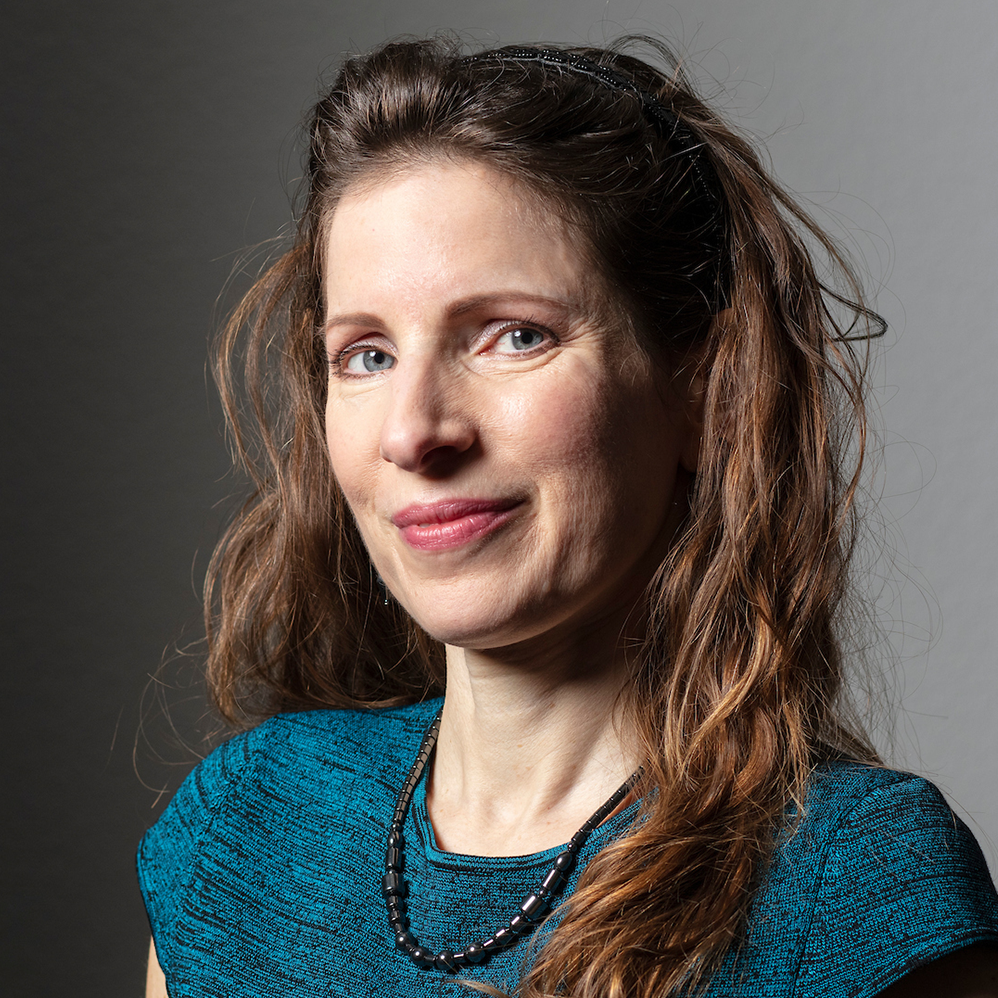

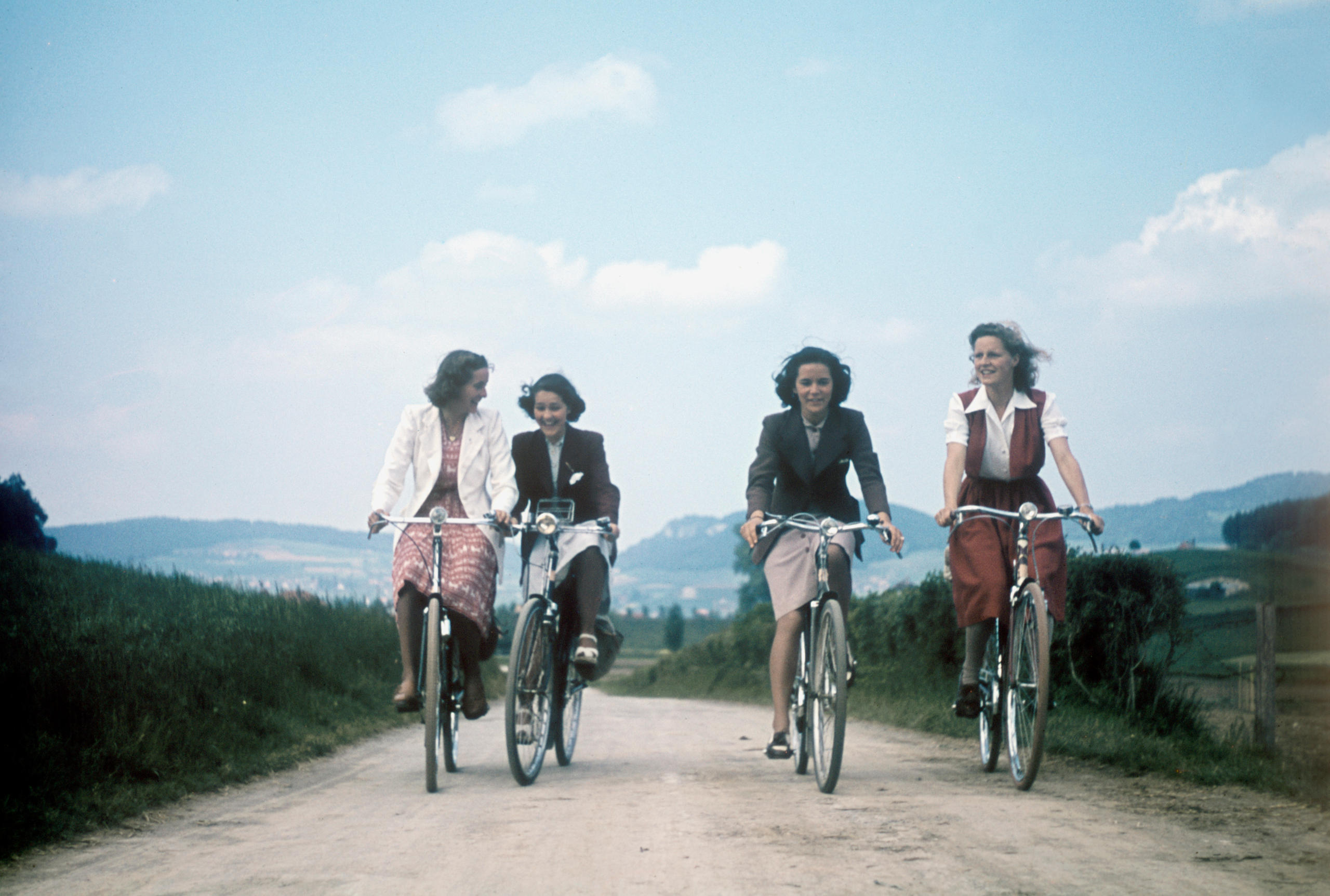
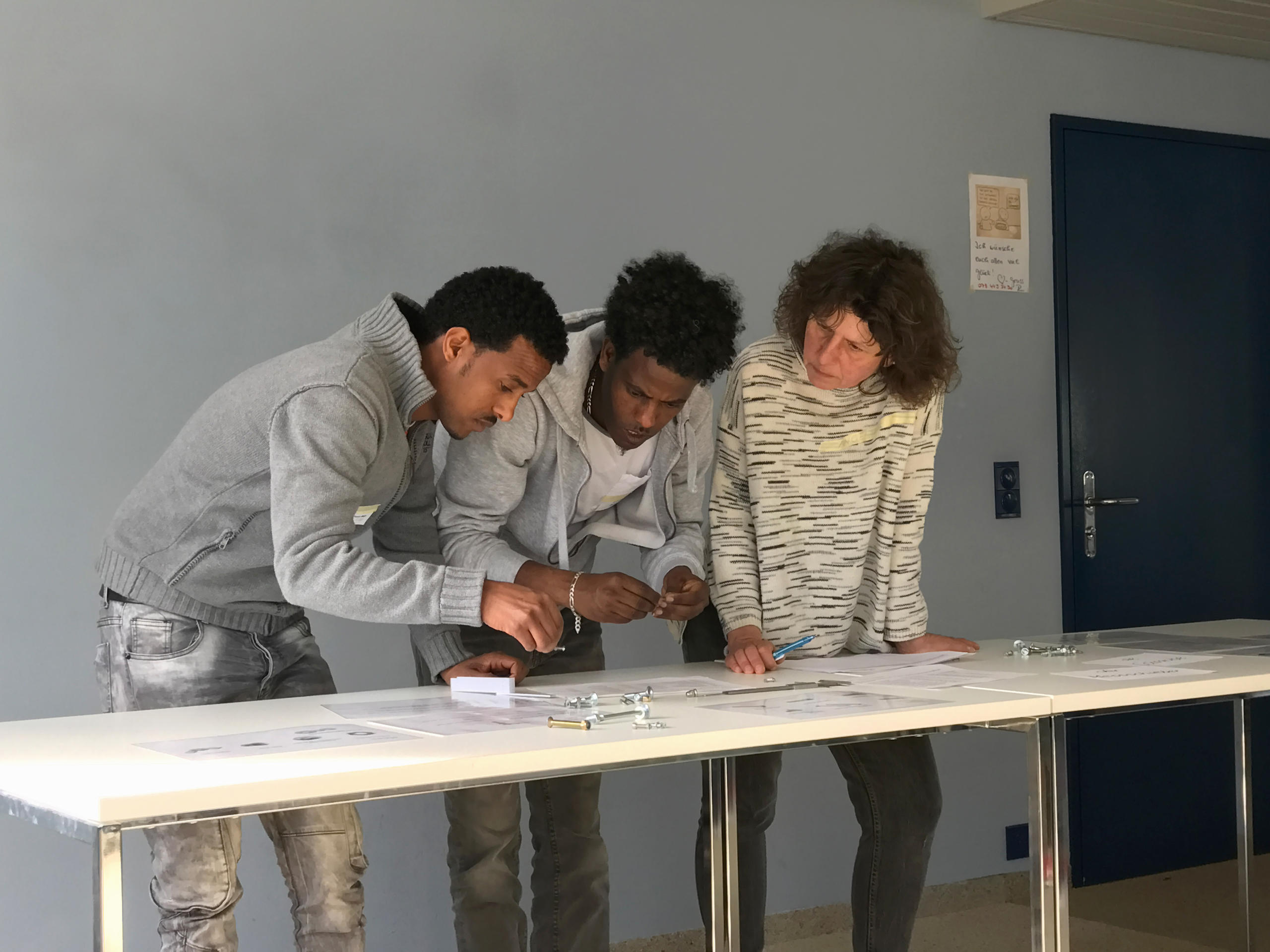

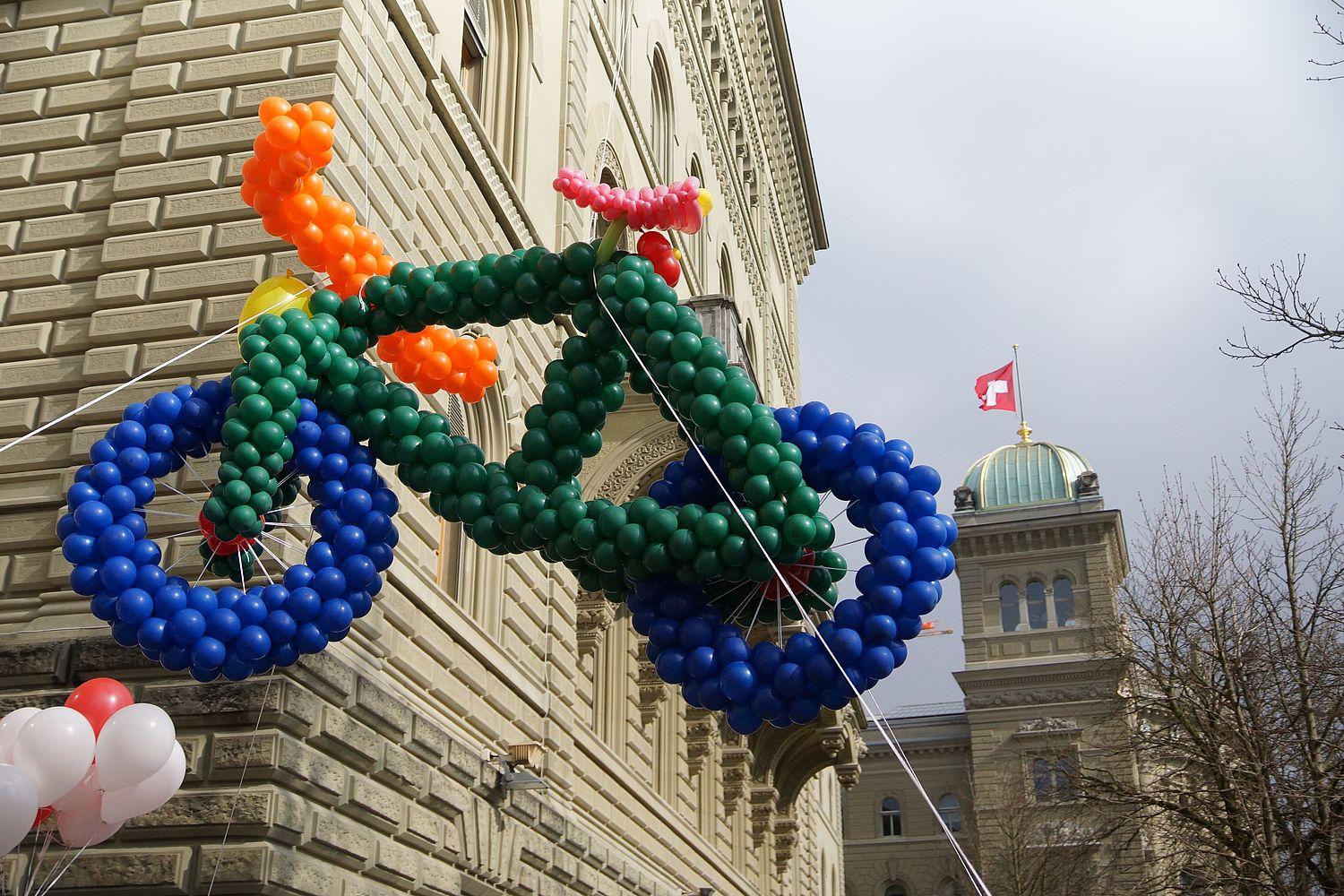
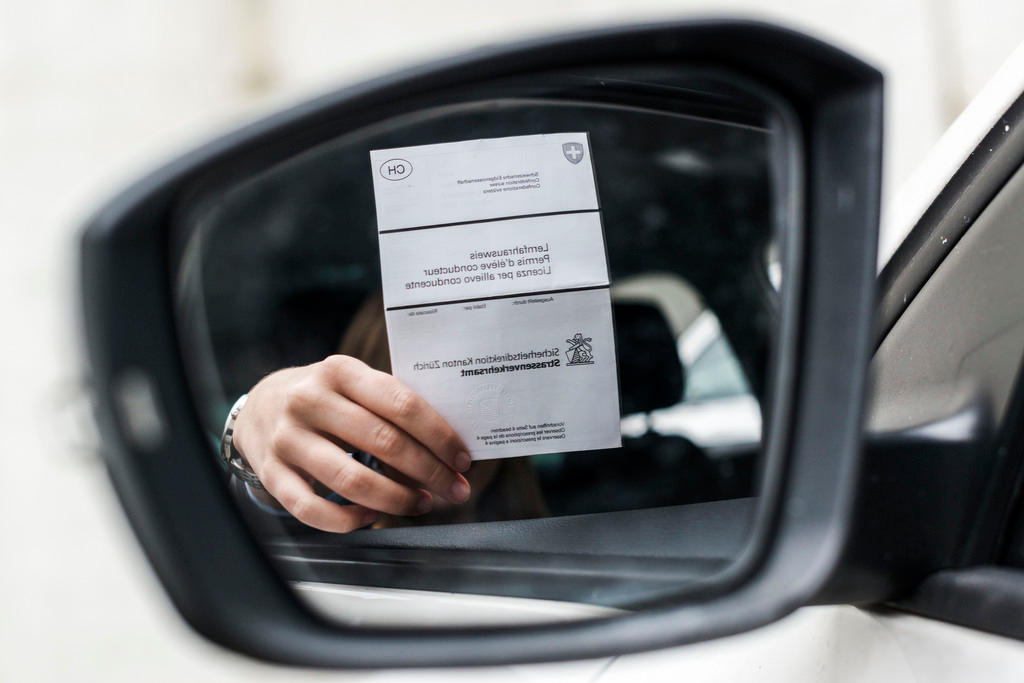
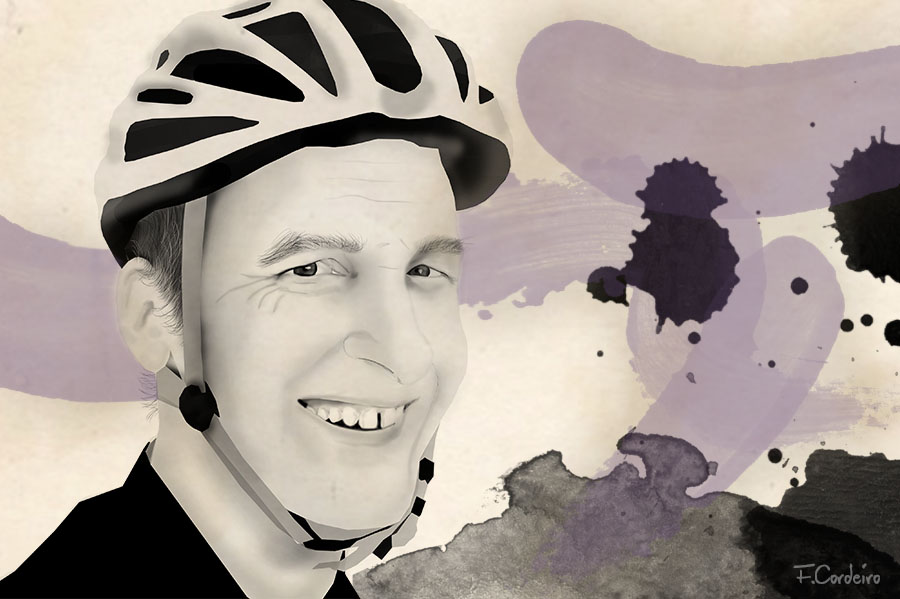
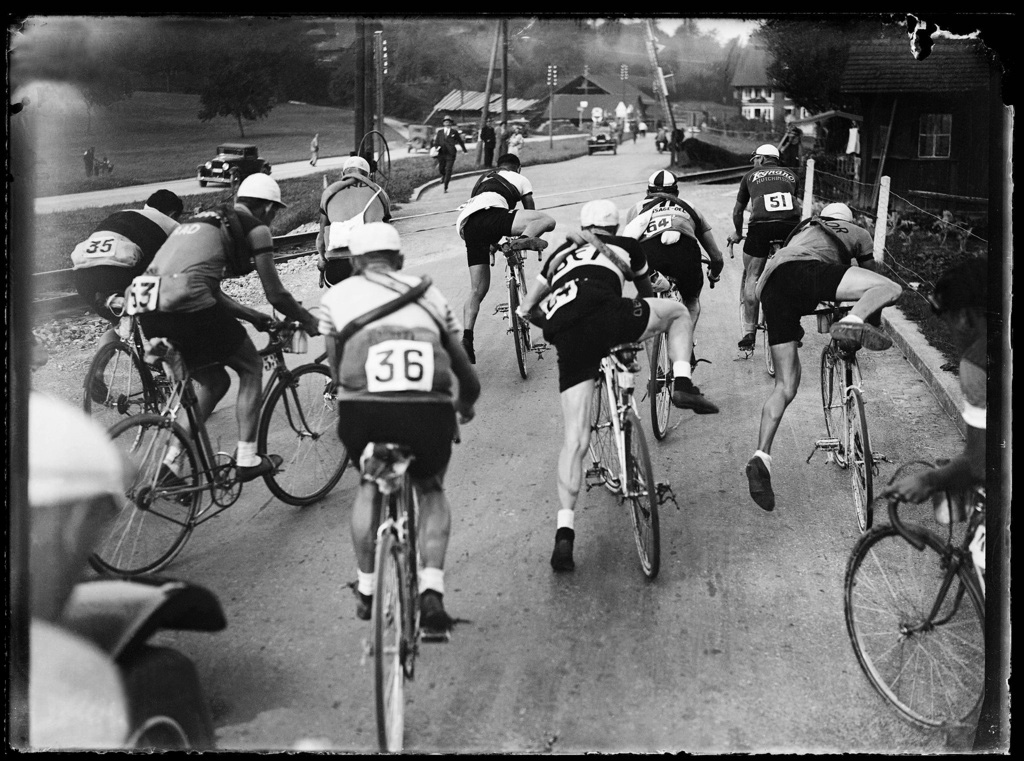
You can find an overview of ongoing debates with our journalists here. Please join us!
If you want to start a conversation about a topic raised in this article or want to report factual errors, email us at english@swissinfo.ch.